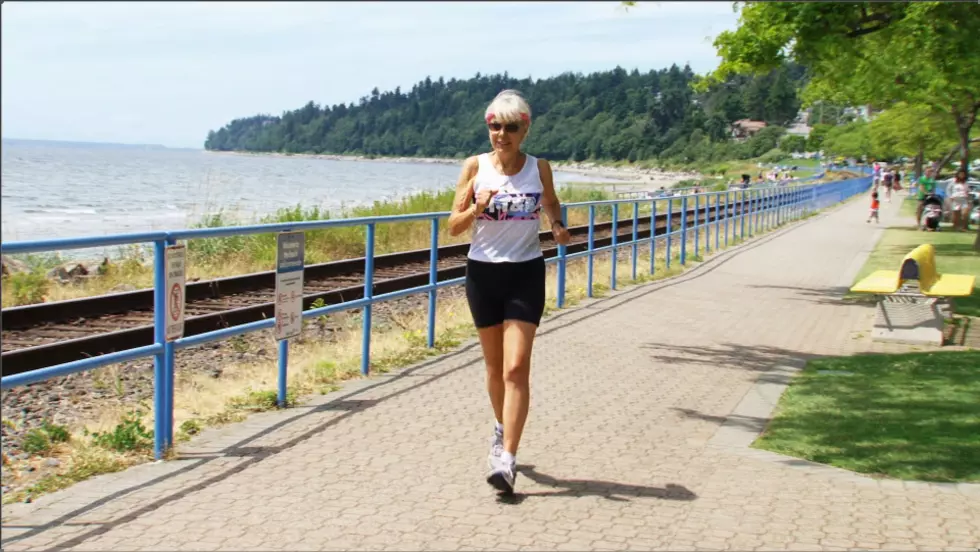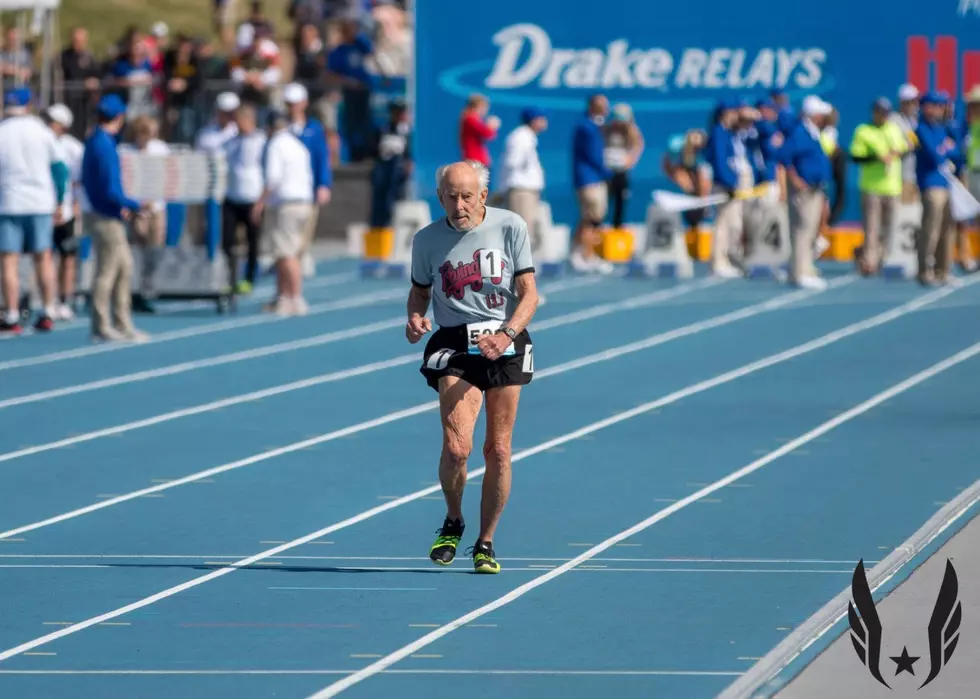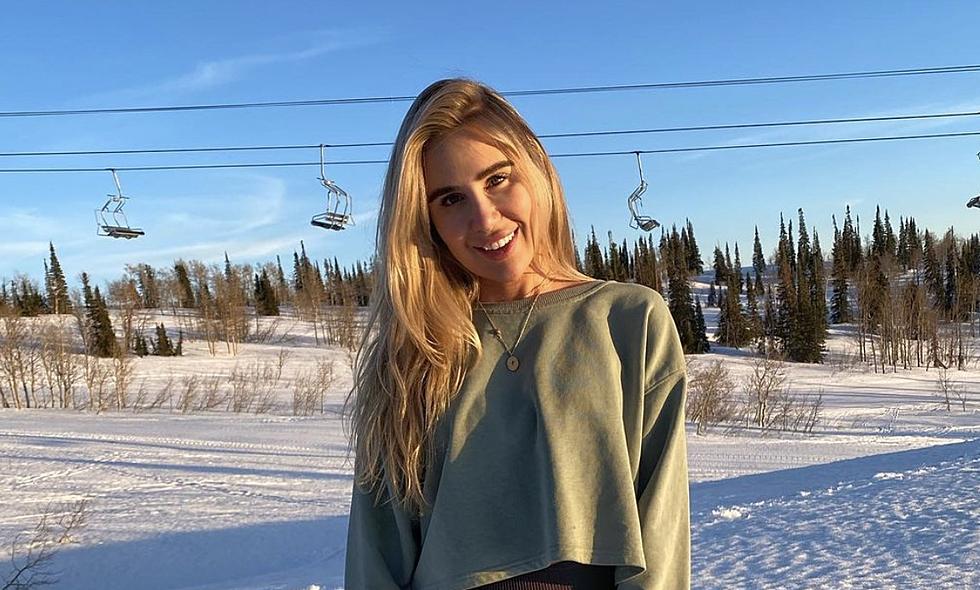
This 86-Year Old Triathlete Recovered from Breast Cancer on a Vegan Diet
Ruth Heidrich is an athlete, author, and breast cancer survivor who has adopted a vegan lifestyle for over thirty years now. While on a plant-based diet, Heidrich saw her breast cancer go into remission, and she progressed from running marathons to doing triathlons, becoming the first known vegan to run the prestigious Kona Ironman Triathlon. Named one of the 10 fittest women in North America, this marathoner is optimizing the powerful properties of the vegan diet to reach new heights with her athletic endeavors. To date, she has won 900 trophies, 8 Gold Medals in the U.S. Senior Olympics, and completed 67 marathons including ones in Boston, New York, and Moscow.
Heidrich also is an author of A Race for Life, Senior Fitness, The CHEF Cook/Rawbook, Lifelong Running: How to Overcome the 11 Myths of Running & Live a Healthier Life, and Prevent, Reverse, & Cure ED: Ten Steps to Total Sexual Fitness. She also writes a variety of articles on her blog, emphasizing how a vegan diet can heal and nourish the body.
In an exclusive interview with The Beet from December of 2020, Heidrich – now 86 years old – talks about her health journey, how her vegan diet helped her achieve her running feats, and what she eats in a day. We believe her advice will empower you to load up on raw, plant-based foods and strengthen your body to accomplish your fitness goals!
The Beet: What made you decide to go vegan?
Dr. Ruth Heidrich: With a diagnosis of Stage 4 Breast Cancer, I had the proverbial "medical gun" to my head. I realized that this information about the power of diet could save my life, so I committed myself to it.
TB: Can you tell us the story — we are so grateful you are sharing your health journey.
RH: In 1968, I saw a book entitled "Aerobics" by Dr. Kenneth Cooper. I'd never seen the word, "Aerobics", before, so I was curious as to what it meant. I ended up reading the book, where I learned of the many benefits of exercise and became inspired to start running every morning. I eventually got up to running marathons. I'd been running for 14 years when my diagnosis of cancer came, and I thought I was too healthy to have cancer. I got second, third, and even fourth opinion that, yes, it was definitely cancer. Right at that time, I read that Dr. John McDougall was doing research on diet and breast cancer and I was curious about this research. He was looking for subjects who were newly diagnosed and before they had gotten any chemo/radiation.
He was trying to show that a low-fat, vegan diet alone, could reverse cancer without chemo/radiation. and not even have any recurrence of cancer. He showed me the epidemiological and animal studies that supported his theory. I was convinced and signed up for his clinical research trial and from that moment on, I was a newly-emerged "Vegan"!
TB: Did you try other alternative avenues as well?
RH: No, I was convinced by the studies Dr. McDougall showed me, that this was the way to go. Armed with this information, in less than two hours with Dr. McDougall, I walked out of his office a vegan.
TB: What did your doc say? Most are skeptical that food is medicine.
RH: My oncologist scoffed when I told him what I was doing, saying "Diet has nothing to do with breast cancer!" He sent me to a gastroenterologist who told me that I couldn't possibly get enough protein, calcium, and all the essential amino acids. I went back to Dr. McDougall and he showed me how I'd get plenty of protein, calcium, and essential amino acids. So I remain convinced I was on the right track.
TB: What was the hardest moment or biggest challenge? Did you nearly give up?
RH: Armed with those statistics, there was no doubt in my mind that this was the right thing to do. Then I discovered I really loved the food and saw so many other benefits, so it wasn't hard nor did I ever come close to giving up. In fact, I started raving about the diet, but nobody listened. They thought I was foolish to not follow conventional treatment.
TB: What differences did you see after going vegan?
RH: I started seeing some of the benefits the very next morning! I'd been constipated all my life, That was a big advantage right there. Then the bone pain started disappearing, I got right back into running races and took 17 minutes off my next marathon. So I was running faster and pleasantly surprised at how quickly I was recovering as well. The new bone scan was clear as was the liver. The lesion in my lung had encapsulated so it was just a matter of watching to see if it grew and actually, it disappeared several years later.
TB: How do you eat now? What does a typical day look like for you (in terms of what you eat for breakfast, lunch, dinner, and snack(s)?
RH: In the morning I start with packing the leafy greens into a blender which includes kale, bok choi, collards, watercress, spinach, cabbage, arugula, chlorella, cilantro, fennel, rosemary, and even green onions and celery tops. Of course, not all of these are available at the same time, so I juggle variations of the greens and the quantities. Then I add enough filtered water to the green smoothie to give it the consistency of salsa.
For my breakfast, in a large bowl, I'll have a clove of crushed fresh garlic which I allow to stand for roughly ten minutes as the exposure increases the availability of allicin, one of the anti-inflammatory ingredients. To get a good supply of omega-3 fatty acids, I add a tablespoon each of flaxseed, chia, and hemp seeds to the green smoothie and buy organic as much as possible. I pour about a third of it over my rolled oats, different ancient grains such as teff, amaranth, or rye, some blueberries, and enough filtered water to moisten.
For my lunch, it’s papaya or mango, a banana, 7 or 8 prunes, a crushed clove of garlic, an inch of fresh, raw ginger; an inch of fresh turmeric (or ground if fresh isn’t available) with black pepper (to enhance its absorption), a large slice of organic tofu, a handful of almonds, a big sprinkle of cinnamon, and more leafy greens from the green smoothie.
For my dinner, it’s the rest of the green smoothie but poured over cherry tomatoes, broccoli, a carrot, beans, mushrooms, a second crushed clove of garlic, and maybe a beet, radish, cucumber, zucchini, okra, squash, or green beans—whatever I happened to find at the farmer’s market. My main starches are whole grains, quinoa, and as many purple sweet potatoes or yams as I need to give me complete satiety.
The finale is my all-time favorite dessert—more blueberries, a handful of goji berries, a handful of walnuts, a rounded teaspoon of 100 percent cocoa powder, a tiny bit of stevia, and enough filtered water to moisten the cocoa powder. When I find a big, fresh pineapple, I add that as well.
This is as high-nutrient a diet as I’ve been able to come up with, and is so satisfying that I never feel the need to snack. I include every nutrient that I could find to help my immune system. I’m also always on the lookout for any improvements. It is a highly raw and nutritious diet that focuses on the anti-inflammatory aspects of these ingredients. The only cooked foods are sweet potatoes, quinoa, beans, and mushrooms. (You’ve probably heard of those “nasty lectins” which some have said to be in beans and other legumes which is true but we don't eat uncooked beans, and once they’re cooked, they are healthy, add satiety, and are an excellent source of protein and fiber.)
TB: What advice would you give someone who is considering going plant-based?
RH: Get armed with understanding the science behind how the wrong foods can kill you and how the right foods can prevent most all of the most common diseases that kill, # 1, heart disease, # 2, cancer, #3 stroke, #4 medical mistakes, believe it or not. This diet can reverse type 2 diabetes, high blood pressure, E.D., and obesity, and even enable you to run Ironman Triathlons.
TB: What has been your personal biggest triumph? What are you proudest of?
RH: I would say that being curious was my biggest triumph. Out of curiosity I picked up a book, read it, and embarked on a nearly 50-year record of running. Then when I read about some research being conducted on cancer, I was curious enough to find out about it, and if I could participate. Then, of course, I'm quite proud of those six Ironman Triathlons I've done, four in Kona, Hawaii; one in Auckland, New Zealand; and one in Hikone, Japan. With the information I'd gained, I turned to lecturing and writing books to get all this very valuable information out to everybody.
TB: What message do you have for the world?
RH: We're running out of time! Between squandering our resources by raising animals for food, the cruel, painful way those animals are treated, and the climate change we're seeing already, there is every reason to change now! What we are doing now is not sustainable, especially with the population continuing to increase exponentially.
For more inspiring plant-based stories, check out The Beet's Success Stories.
More From The Beet









